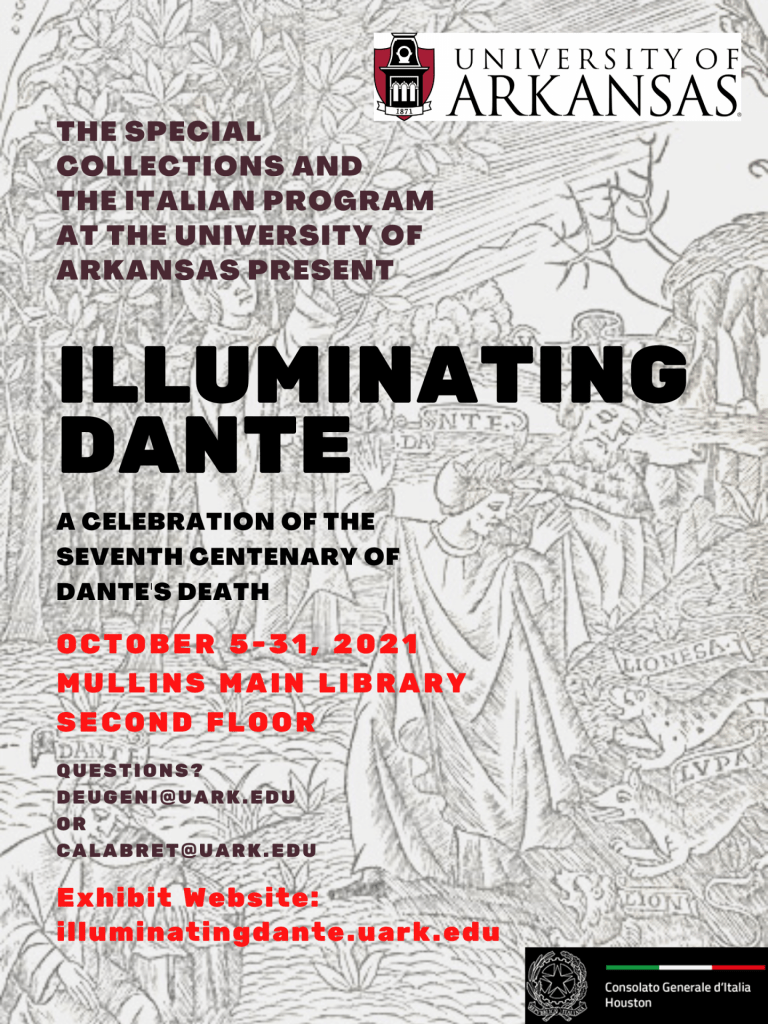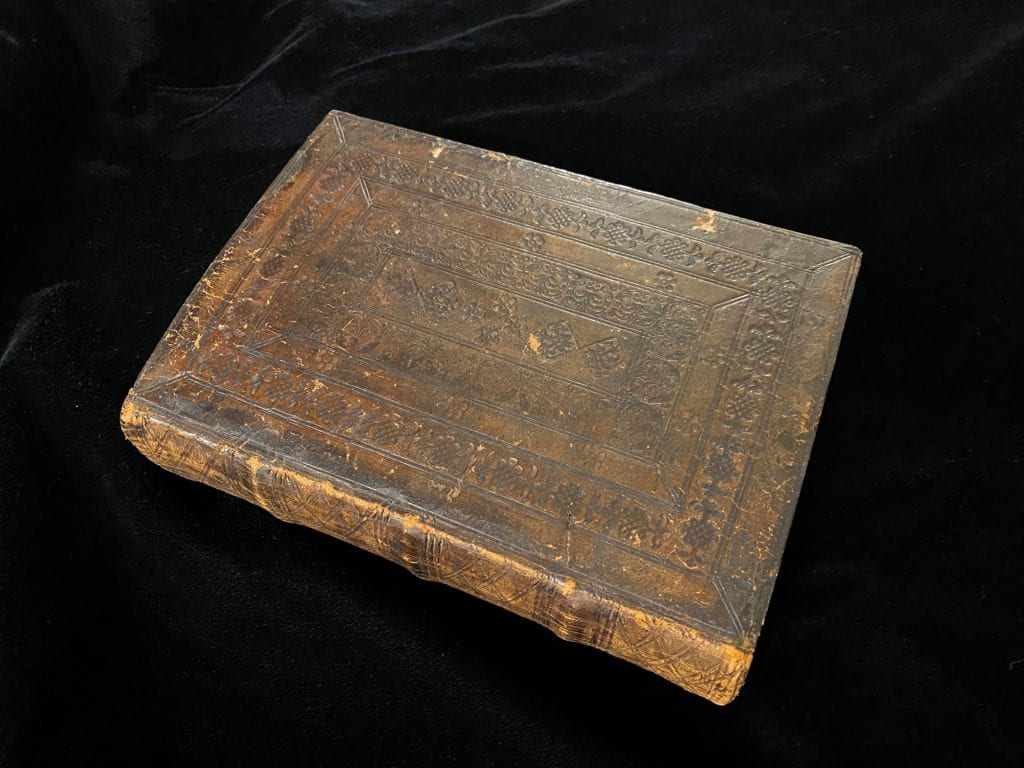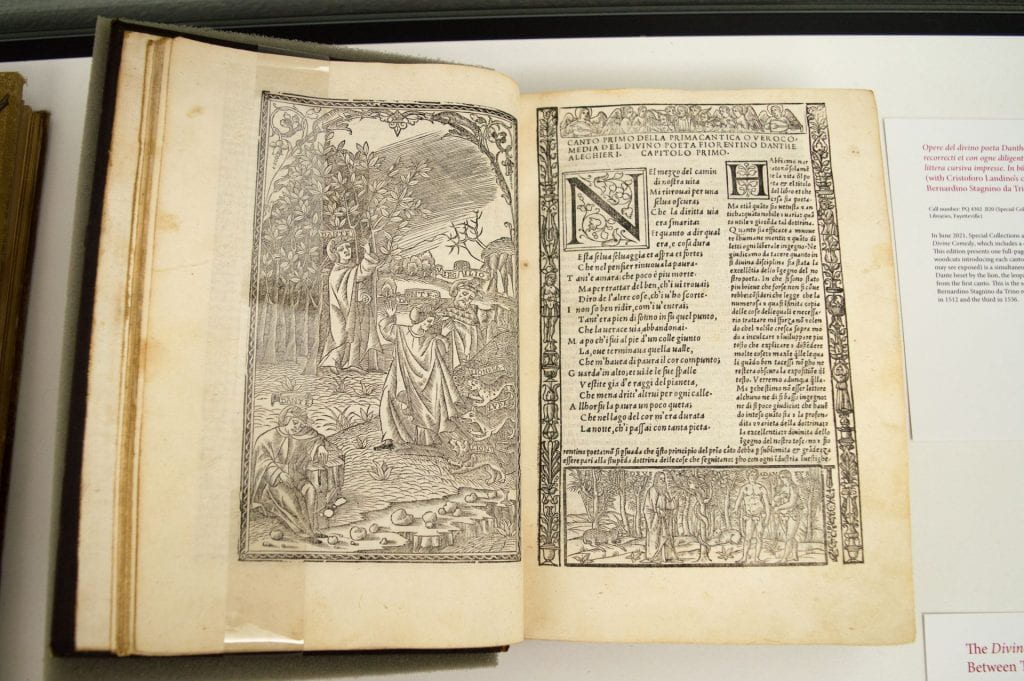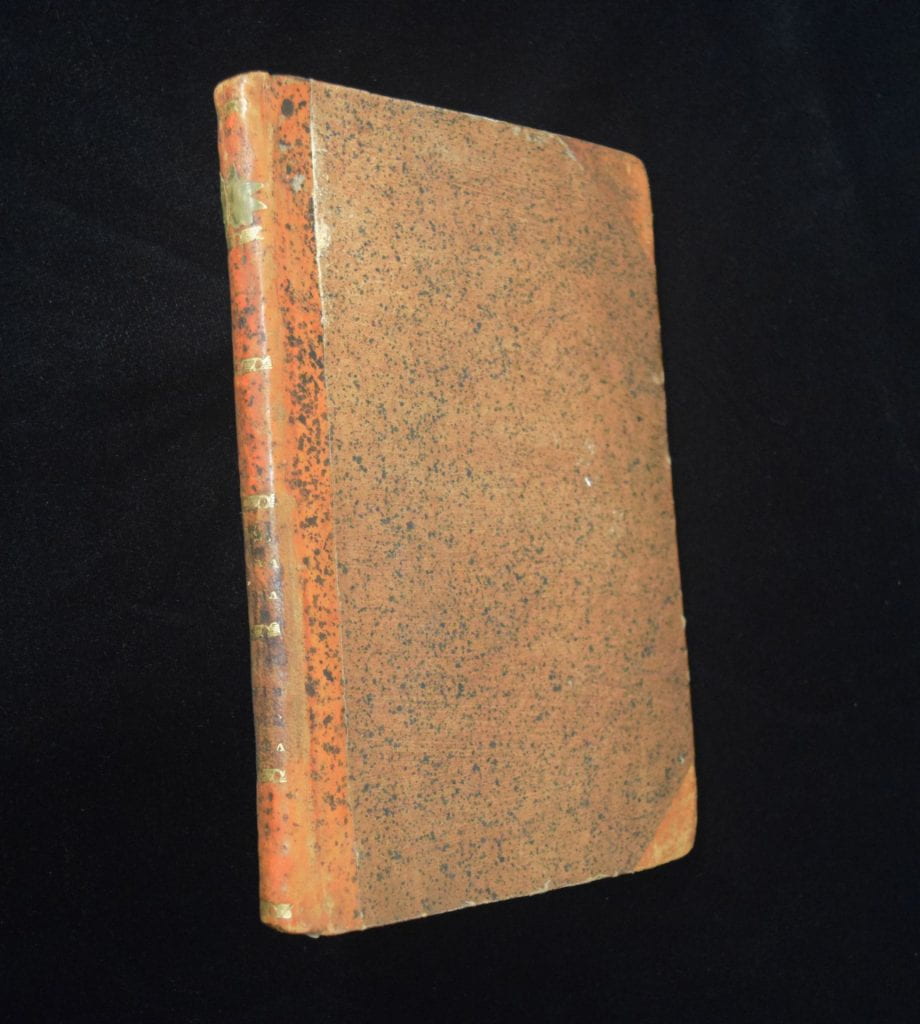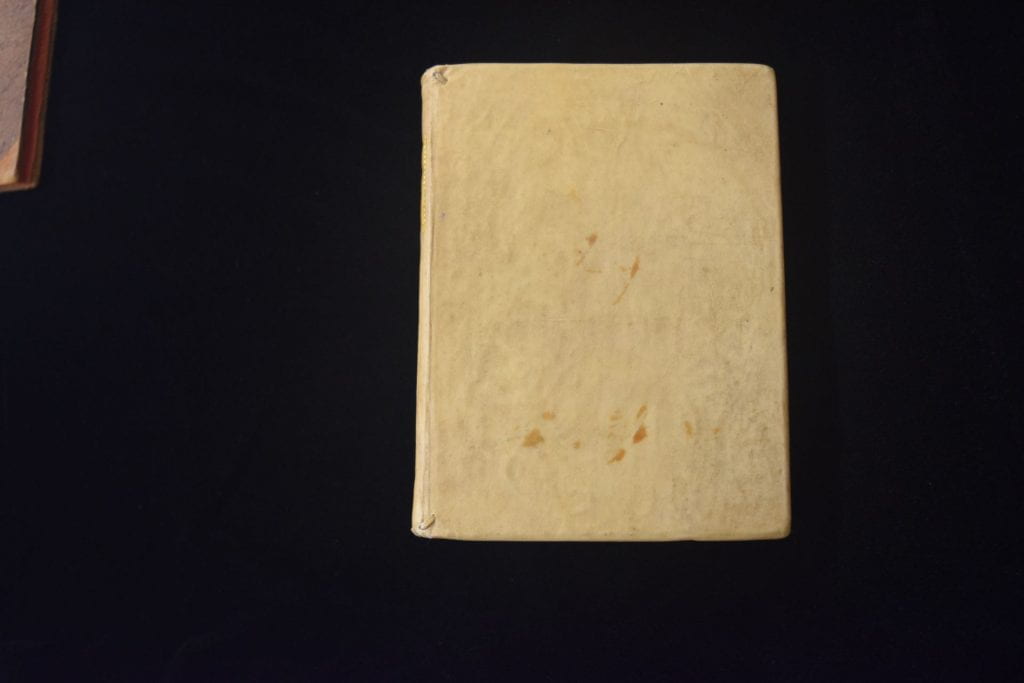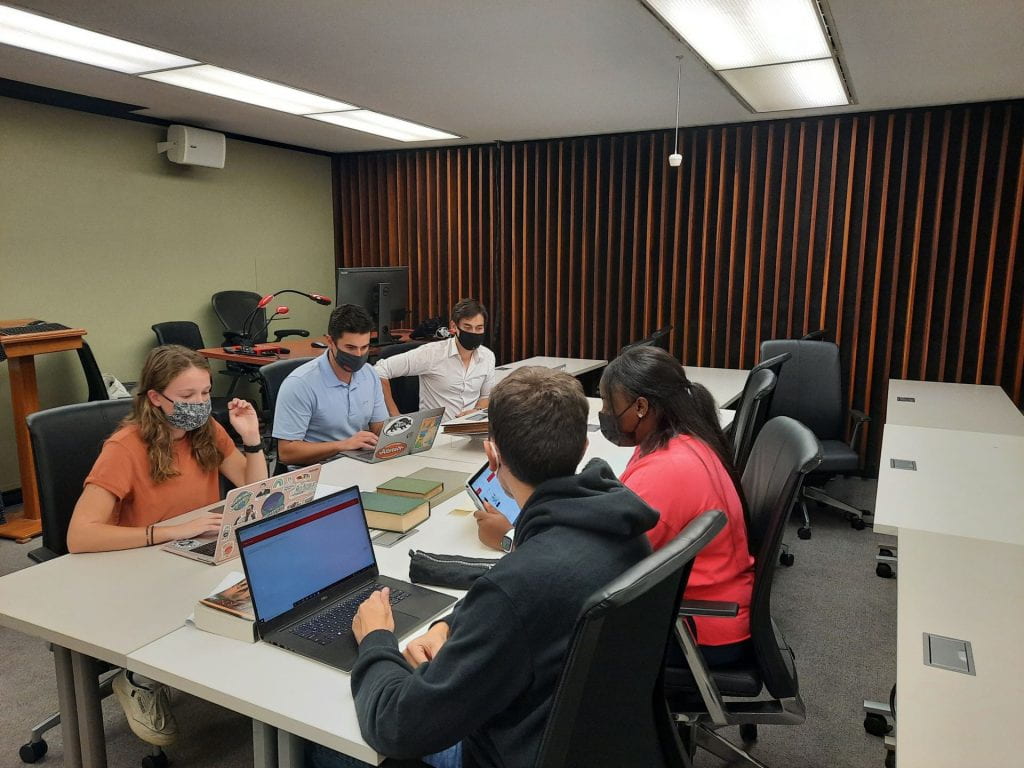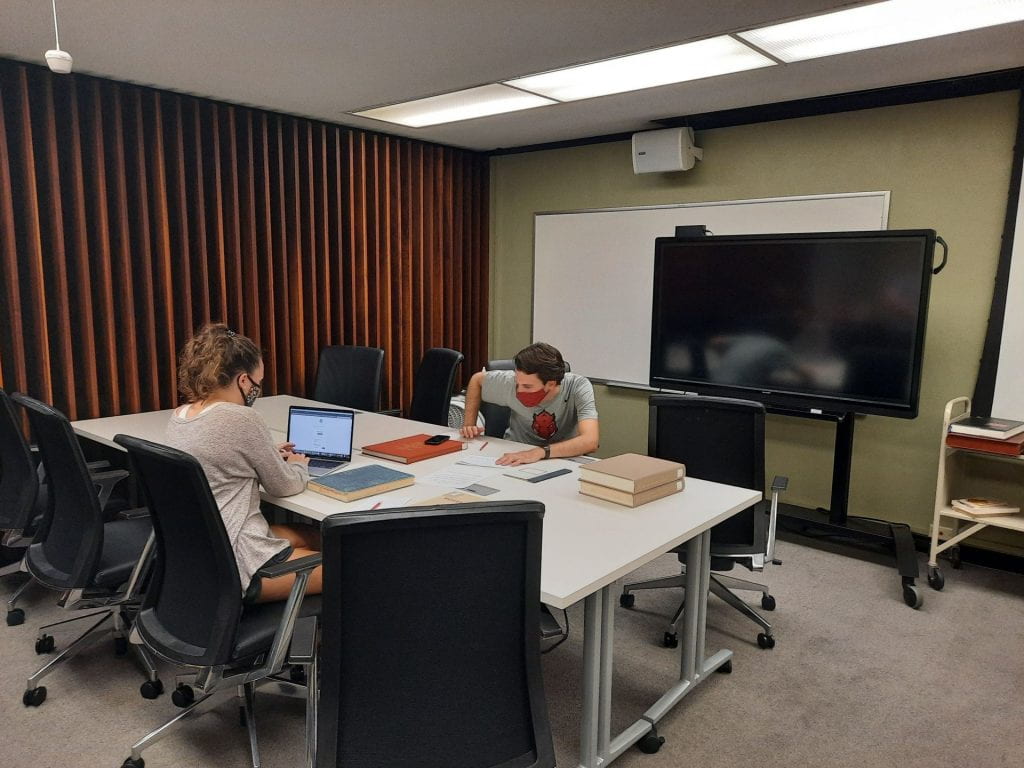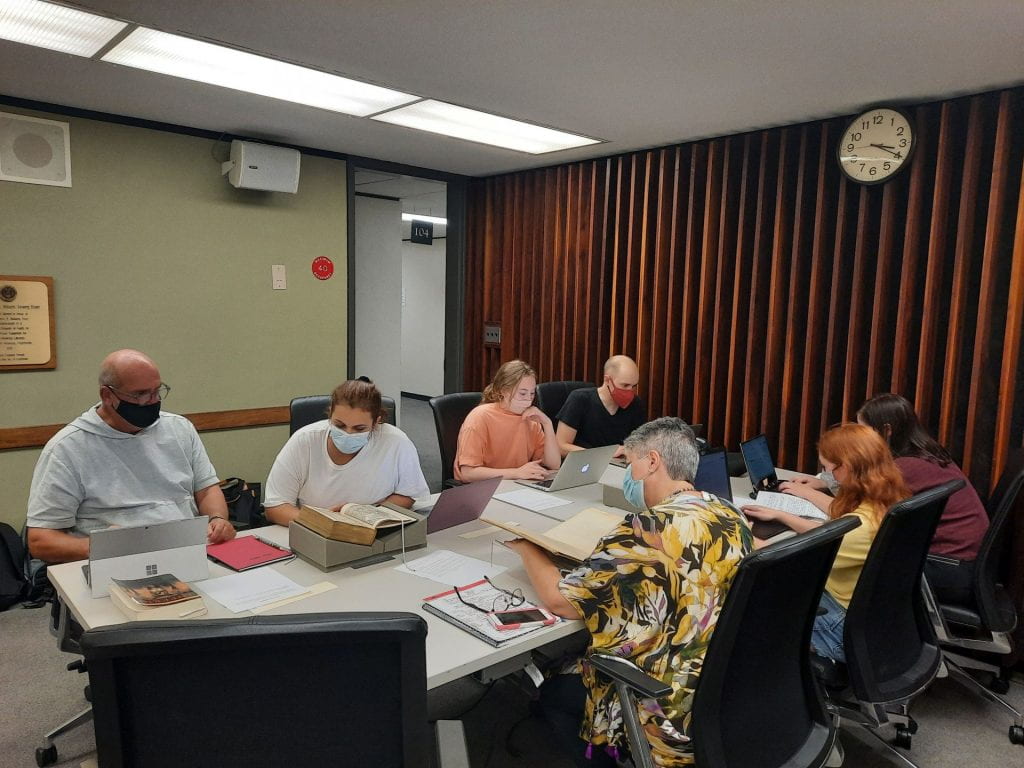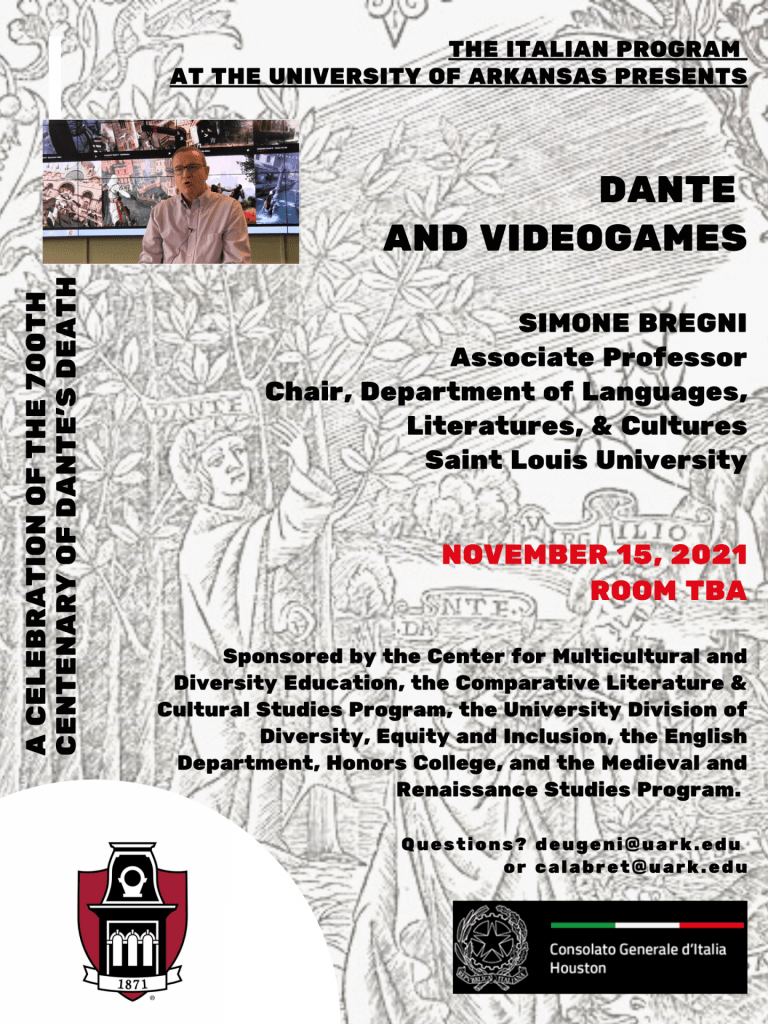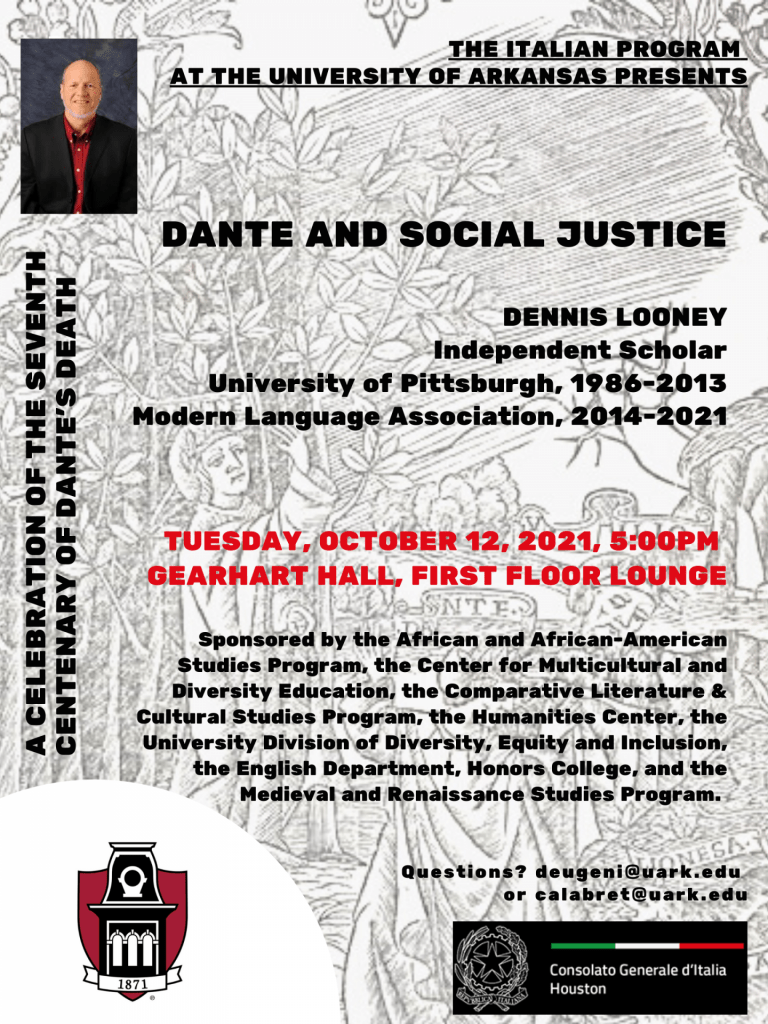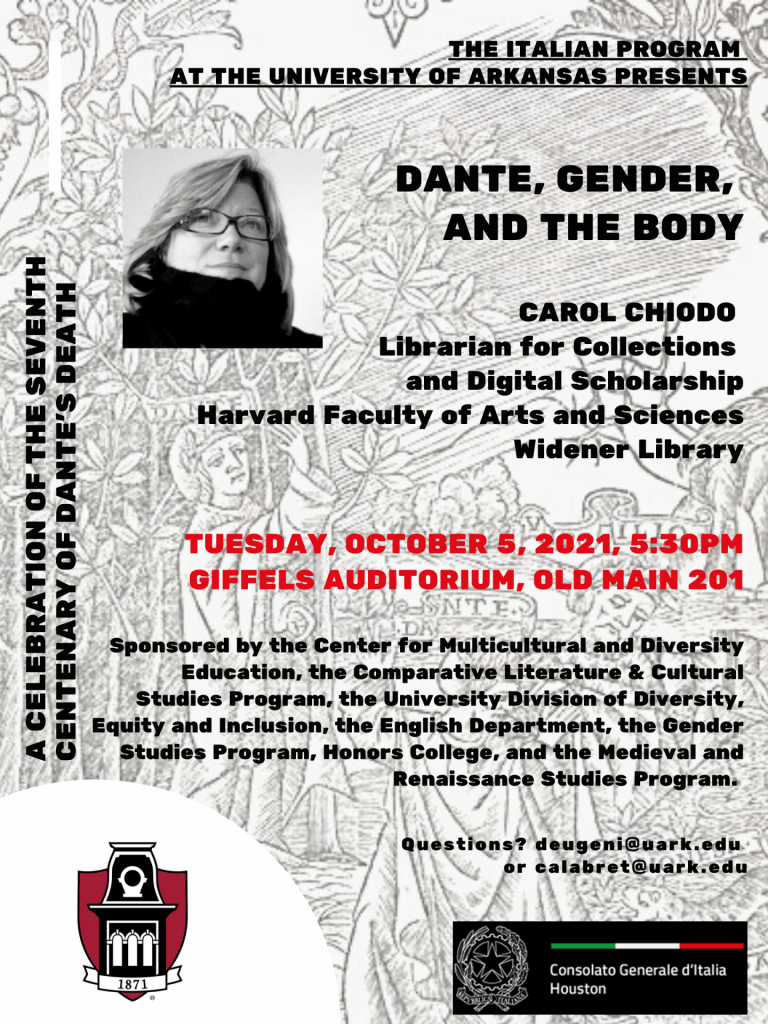Dante, one of the “fathers” of the Italian language, was born in Florence in 1265 and died in the exile of Ravenna in 1321. The purpose of this exhibition in 2021 is to commemorate the seventh centenary of his death and to bring his most popular work, the Divine Comedy, closer to the public. Recounting the author’s pilgrimage through Hell, Purgatory, and Paradise, this monumental poem ranks among the world’s most important literary works.
Presented from October 5th through October 31st, the exhibit features a recently acquired 1520 exemplar of the Divine Comedy, along with various editions of Dante’s masterpiece in Italian and English, with illustrations by Gustave Doré and John Flaxman. Also on view are works connected to or inspired by the Divine Comedy, including a collection of poems by Vittoria Colonna (1548) and a treatise by Lucrezia Marinella (1601). The exhibit includes medieval, early modern, and modern visual representations of the Divine Comedy, ranging from fourteenth-century illuminations to Sandro Botticelli’s and William Blake’s series of illustrations. Finally, the exhibit displays works that explore the reception of Dante’s masterpiece across a variety of cultural contexts, with works from countries including Spain and France. Examples from the African American community are represented as well.
Opere del divino poeta Danthe con suoi comenti recorrecti et con ogne diligentia nuovamente in littera cursiva impresse. In biblioteca S. Bernardini (with Cristoforo Landino’s commentary). Venezia: Bernardino Stagnino da Trino, 1520.
Le rime spirituali della illustrissima signora Vittoria Colonna Marchesana di Pescara. Venezia: alla bottega d’Erasmo appresso Vincenzo Valgrisi, 1548.
La nobiltà et l’eccellenza delle donne co’ difetti et mancamenti de gli huomini. Discorso di Lucrezia Marinella, in due parti diviso. Venezia: apresso Giovanni Battista Ciotti sanese all’insegna dell’aurora, 1601.
Classroom collaboration figured heavily in creation of the exhibit. Organized in small groups, students were given their choice of several possibilities for research; then, meeting in the Special Collections at Mullins Library, they viewed several Dante artifacts. Students compared and contrasted Illustrations from various time periods, and two groups, with advanced knowledge of Italian, analyzed prose and verse translations of specific passages and transcribed the initial paragraphs of a manuscript copy (in a facsimile format at Special Collections) of the Divine Comedy.
Along with the exhibition, the Italian Program organized three lectures on the topic of “Dante and Otherness” in the Fall semester of 2021. The events include a presentation on Dante and gender on October 5 by Dr. Carol Chiodo (Librarian for Collections and Digital Scholarship, Widener Library, Harvard University: https://library.harvard.edu/staff/carol-chiodo; https://carolchiodo.com/), a lecture on Dante and social justice on October 12 by Dr. Dennis Looney (Independent Scholar; University of Pittsburgh, 1986-2013: https://www.classics.pitt.edu/people/dennis-looney; Modern Language Association, 2014-2021: https://mla.hcommons.org/members/looney/), and a talk on Dante and videogames on November 15 by Dr. Simone Bregni (Associate Professor and Chair, Department of Languages, Literatures, & Cultures, Saint Louis University: https://www.slu.edu/arts-and-sciences/languages-literatures-cultures/faculty/bregni-simone.php).
[Written by Devin Shepherd, Isidoro Villa Ligero, and Jane Wineland]
List of students in Italian 4123 “Dante: A Journey Between Visions and Words”
Ava Buchanan
Cesca Craig
Cameron Gunter
Pablo Linares de Avila
Stephen Meehan
Alexandria Meredith
Shakira (Honey) Okuneye
Tucker Onishi
Jason Razaghi
Daniella Sanidas Stabile
Devin Shepherd
Gabrielle Stack
Jack Switzer
Samuel Turner
Isidoro Villa Ligero
Abigail Williams
Jane Wineland

